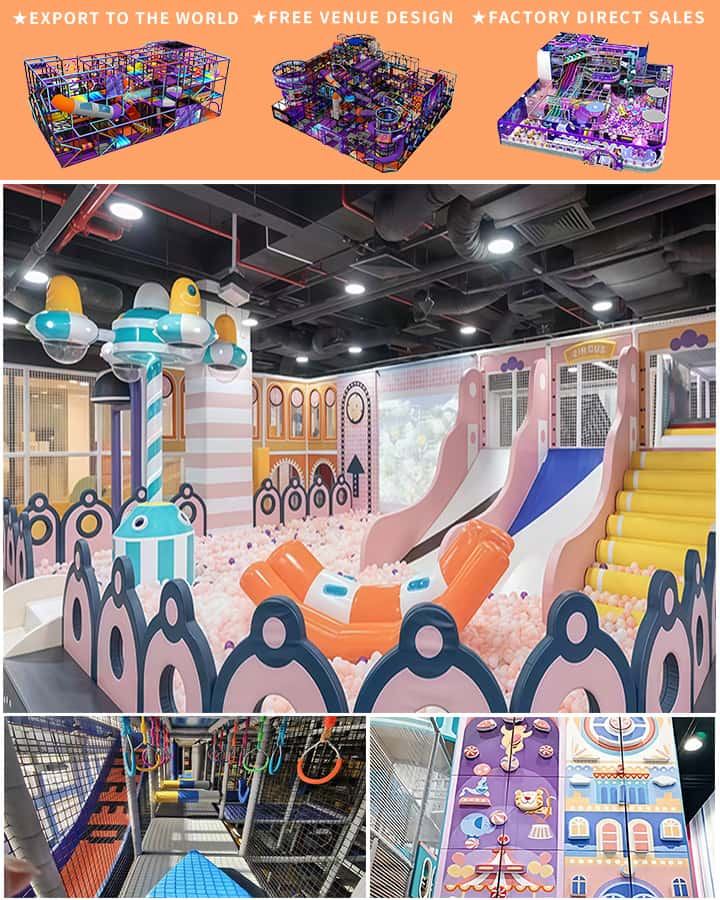Childhood is a period brimming with energy, curiosity, and the desire to explore. In childcare centers, where young minds take their first steps towards education and socialization, playground equipment plays an indispensable role. The right selection of playground equipment not only fosters physical development but also nurtures cognitive and social skills, creating a comprehensive learning environment for children. This article delves into the significance of playground equipment in childcare centers and highlights key considerations for selecting the best options.
Physical Development through Play
One of the primary benefits of playground equipment is its contribution to physical development. Activities such as climbing, sliding, and balancing help improve motor skills, coordination, and overall physical fitness. For instance, climbing structures challenge children’s upper body strength and coordination while slides provide an exhilarating way to practice balance and gravity.
Swings are another essential piece of equipment that promotes muscle development and enhances balance. As children pump their legs to go higher, they engage their core muscles and improve their ability to control their bodies in motion. Moreover, playground equipment encourages active play, which is crucial in combating sedentary lifestyle-related issues such as obesity.
Cognitive Growth and Creativity

Playgrounds are not just about physical activities; they are also fertile grounds for cognitive development. Interactive equipment like seesaws, merry-go-rounds, and activity panels stimulate problem-solving skills, spatial awareness, and imagination. Children learn cause and effect as they experiment with different movements and observe the outcomes.
Activity panels equipped with puzzles, gears, and levers invite children to think critically and solve problems. These experiences are foundational for developing logical reasoning and analytical skills. Furthermore, imaginative play on playground equipment allows children to create stories and scenarios, fostering creativity and enhancing language development through storytelling and communication with peers.
Social Skills and Emotional Well-being
Childcare centers are social ecosystems where children learn to interact, share, and collaborate. Playground equipment provides a platform for social engagement, helping children develop crucial interpersonal skills. Group activities on playground structures teach cooperation, empathy, and conflict resolution. Whether it’s taking turns on a slide or working together to navigate a climbing wall, these experiences lay the groundwork for positive social interactions.
Moreover, playgrounds offer a sense of freedom and joy, contributing significantly to emotional well-being. The laughter and camaraderie experienced during playtime boost self-esteem and resilience. Overcoming challenges on the playground instills confidence and a sense of accomplishment in children.
Safety First: Key Considerations
While the benefits of playground equipment are manifold, safety remains paramount. Selecting age-appropriate equipment is crucial to prevent accidents. Childcare centers should opt for non-toxic materials and ensure that the equipment meets national safety standards. Regular maintenance and inspections are also vital to keep the playground safe and functional.
Additionally, proper supervision is necessary to ensure that children use the equipment correctly. Trained staff should be present to guide and protect children during playtime, ensuring a safe and enjoyable experience for all.
Conclusion
In conclusion, playground equipment is an integral component of childcare centers, offering multifaceted benefits ranging from physical fitness to cognitive growth and social development. By choosing the right equipment and ensuring a safe play environment, childcare centers can create enriching experiences that support the holistic development of young children. Investing in quality playground equipment today paves the way for a brighter, healthier future for the next generation.




